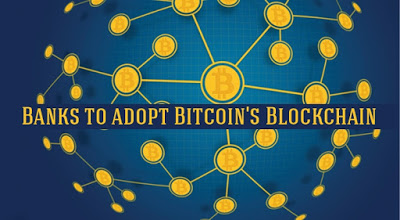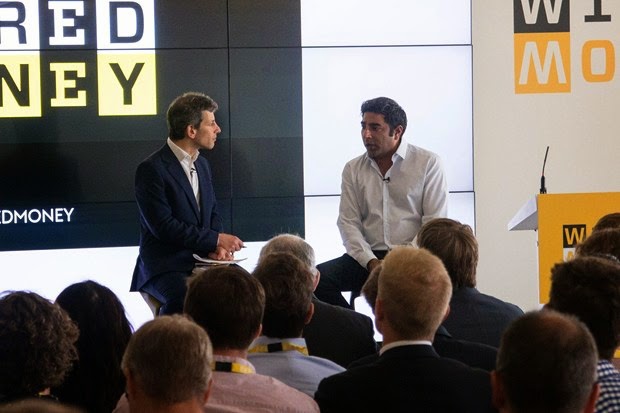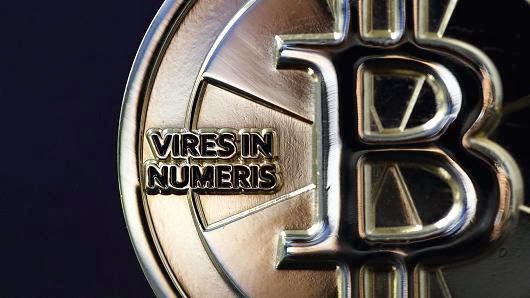Search Results For: jp morgan

Hitachi is studying the Blockchain
In a press release, Hitachi explained:
“By establishing the Financial Innovation Laboratory in the Silicon Valley, Hitachi will accelerate research [and] development of blockchain technology, collaborative creation with customers, and development of solutions to support business innovation in financial institutions.”
Hitachi partners with Hyperledger
This statement follows a previous company’s news related to the blockchain: in fact, in February Hitachi joined the Hyperledger Project, an advaced blockchain technology that aims at “identifying and addressing important features for a cross-industry open standard for distributed ledgers that can transform the way business transactions are conducted globally.”
The Hyperledger Project is a Linux Foundation collaborative project that stars some of the most important companies in the world, including IBM, J.P. Morgan, Fujitsu and many more.
Open your free digital wallet here to store your cryptocurrencies in a safe place.

Bank of England will create its own cryptocurrency
The Bank of England announced its decision to create its own digital currency.
The cryptocurrency will be called RSCoin and it will use the blockchain, the decentralized ledger where bitcoin transactions are written and executed.
More Centralized Control
RSCoin has been developed by researchers at the University College of London.
How could this be positive?
Even if RSCoin is centralized and the opposite thing of Bitcoin, we could say that it is positive as it means that worldwide Central Banks are starting to give importance to cryptocurrencies.
However, RSCoin has its own benefits: for example no double spending, non-repudiable sealing, timed personal audits, universal audits and exposed inactivity.
Read the complete documentation
Univerisity College of London researches George Danezis and Sarah Meiklejohn published an abstract about RSCoin.
The full whitepaper is intitled “Centrally Banked Cryptocurrencies”.
The abstract begins from the bitcoin history, to explain everyone the impact of the digital currencies not only in the finance world:
“Recently, major financial institutions such as JPMorgan Chase and Nasdaq have announced plans to develop blockchain technologies. The potential impacts of cryptocurrencies have now been acknowledged even by government institutions: the European Central Bank anticipates their “impact on monetary policy and price stability”.
People’s Bank of China and its own cryptocurrency
In January 2016, the People’s Bank of China commented about its plans to launch its own digital currency and create a new financial infrastructure for the country.
The project started in 2014, when researches began to study cryptocurrencies related to business operations.
People’s Bank of China commented:
“The issuance of digital currency can reduce the significant costs of issuing and circulating traditional currencies, improve the convenience and transparency of economic transactions, reduce money laundering, tax evasion and other criminal acts, enhance the central bank’s control of over the money supply and currency circulation, better support economic and social development and aid in extending financial services to under-served populations”.
Open your free digital wallet here to store your cryptocurrencies in a safe place.

Deutsche Bank Is Bringing Bitcoin-Inspired Blockchain Technology to Germany
 In a recently translated piece by the Deutsche bank, originally written by Thomas F. Dapp and Alexander Karollus, the German bank discussed how banks in general might be able to benefit from p2p networks like Bitcoin. The authors specifically mention a hypothetical future scenario where banks might assume new tasks that still play on banks’ perceived trustworthiness – “e.g. as custodians of cryptographic keys.” Other existing centralized services might have to adapt to serve other roles in the coming decentralized world. Don’t be surprised if someday soon Bloomberg to self-proclaim themselves as an oracle? They went on to note that the politics of Bitcoin would eventually lead to a head with regulators, law enforcement, etc. However, in the face of this new technology and potential regulatory backlash, Deutsche bank still wants to push forward… Because the concept of a blockchain really is that compelling, and the banks are finally starting to get it. Dapp and Karollus wrote:“Traditional banks should not rely on the regulator now, though, but instead actively experiment with the new technologies in their labs and collaborate without prejudice in order to create their own digital ecosystem in the medium run.”
In a recently translated piece by the Deutsche bank, originally written by Thomas F. Dapp and Alexander Karollus, the German bank discussed how banks in general might be able to benefit from p2p networks like Bitcoin. The authors specifically mention a hypothetical future scenario where banks might assume new tasks that still play on banks’ perceived trustworthiness – “e.g. as custodians of cryptographic keys.” Other existing centralized services might have to adapt to serve other roles in the coming decentralized world. Don’t be surprised if someday soon Bloomberg to self-proclaim themselves as an oracle? They went on to note that the politics of Bitcoin would eventually lead to a head with regulators, law enforcement, etc. However, in the face of this new technology and potential regulatory backlash, Deutsche bank still wants to push forward… Because the concept of a blockchain really is that compelling, and the banks are finally starting to get it. Dapp and Karollus wrote:“Traditional banks should not rely on the regulator now, though, but instead actively experiment with the new technologies in their labs and collaborate without prejudice in order to create their own digital ecosystem in the medium run.”
Open your free digital wallet here to store your cryptocurrencies in a safe place.

Shakil Khan: cryptocurrencies are here, embrace them
already disrupting payments and won’t be stopped, serial investor
Shakil Khan told the audience at Wired Money 2014. So get on board
with change.
much-misunderstood, unstable currency, to a more mature offering
that is finding its place in ecommerce and investor portfolios. So
rather than focus on regulation, which will only delay the
inevitable, the financial sector needs to focus on supervision and
take on the opportunities cryptocurrencies provide.
David Rowan, has invested in Spotify and YPlan, and advised teen
founder of Summly Nick D’Aloisio. But it was in 2012, when he first
heard about a payment company attempting to tackle the Bitcoin
ecosystem, that the cryptocurrency crossed his path. In the
following years, he found himself becoming a point-of-contact for
investors, suddenly intrigued by a currency that went from $10-25
per Bitcoin in 2012 to $260 in 2013.
entrepreneurs asking who is this company Mt Gox? Not because I was
the smartest person, but because there was a different wave of
people who weren’t publicly talking about Bitcoin. Morgan Stanley
was phoning me not because we had a relationship, but because
people were calling them and asking advice, and they were coming to
me.”
BitPay. That’s a lot of hard cash for a currency that dips and
peaks dramatically according to government opinion — for instance
when the FBI referred to it as a currency, Bitcoin became stronger;
when China restricted exchanges and warned it would keep an eye on
the currency, its value tumbled.
average consumer to participate in this — it’s the same as
stocks,” said Khan. We in the tech industry are more than familiar
with Bitcoin, beyond the Silk Road headlines, and those in the
financial sector have followed suit. But it is not yet something
that is impacting the average banking customer. “Right now, it’s
something that’s not for the faint hearted, just like stock trading
where people make 3 percent gains one day, and 25 percent losses
the day after.”
made in the cryptocurrency ecosystem — and this is because, as
Khan reiterated onstage, there is a “fundamental problem with
payments”.
three seconds. But if I want to pay someone 200 kroner online it’ll
cost be $32 and might take four days for the payment to arrive.
That makes zero sense, and cryptocurrencies solve this
problem.”
result of this, says Khan.
Andreessen Horowitz, Fred Wilson and Redpoint. This is a sector
everyone knows is going to get disrupted, and they need to be part
of that journey. Companies like Bit Pay were very early, now we
have ecommerce companies starting accepting Bitocin. Amazon has its
own plans on virtual currency.
then we had email. We’ve seen this over and over, and if you have
passion and an appetite for risk, why wouldn’t you? I don’t want to
turn around and five years say why wasn’t I part of this.”
evidenced by the stories being published by Khan’s own site
Coindesk, which are picked up by the likes of the Wall Street
Journal and Dow Jones. “Over the last 12 months it’s
much less of Silk Road, and more of Visa setting up a group looking
into cryptocurrencies and Western Union or Ebay looking into
Bitcoin.”
Bitcoin, Khan points out that the US $100 note is the chosen
currency of the criminal world — it’s what they’ll find in raids,
and its what the CIA drops in bales of cash into Afghanistan.
“They’re not sending smartphones, they were sending US dollars.”
Recently, the US government sold off the 30,000 Bitcoin it seized
during the Silk Road shutdown. Khan points, “I don’t remember the
US government selling cocaine seized from raids, so you can’t say
it’s illegal and shouldn’t be allowed.”
you don’t understand something, you get fearful of it.”
there is something attractive here for investors — Khan says the
coins, currently priced at $650 each, went for above that
value.
not broken. “I’m guessing there are laser printers out there
devaluing that money quicker than the paper can be printed,” Khan
said.
Open your free digital wallet here to store your cryptocurrencies in a safe place.

Bitcoin’s four steps to Wall Street acceptance
its recent rise above the $1,000 mark-is gaining it additional converts
to the belief that the cryptocurrency is for real.
One of the latest skeptics-turned-believers is Ty Danco, a respected
market veteran who has worked up one side of Wall Street and down the
other. Danco once oversaw more than $60 billion of assets and now is the
CEO at a trading firm called BuysideFX.
he outlines what he sees as the future for bitcoin, the digital
currency that last was trading at one unit equaling more than $900.
“The media thoroughly covered its meteoric rise in market value as a
currency, but the bigger story is that high-profile investors have
placed significant bets on Bitcoin-related businesses this year,
including Li-Ka Shing, Union Square Ventures, and Andreessen-Horowitz,”
Danco wrote. “Given their involvement, bitcoin demands a serious look.”
(Read more: Do you really know bitcoin? Here are 11 myths )
this week said it would accept bitcoins for payment-Danco said it faces
four challenges before gaining Wall Street’s acceptance:
It seems bitcoin’s path to legitimacy runs straight through government
and regulatory agencies, quite likely the Commodity Futures Trading
Commission. Says Danco:
Early signs from regulators are more promising than I initially
expected, but we still have a long way to go. CFTC: Bitcoin most likely
falls in your lap, whether as a commodity, currency, or derivative. Take
a stand!
Bitcoin indeed needs to shed its image as a toy created by hobbyists
and nerds. After all the leading bitcoin exchange is Mt.Gox, which is
not an abbreviation for “Mount Gox” but rather an acronym for Magic The
Game: Online Exchange, where folks used to trade cards for a Dungeons
& Dragons-esque game.
I can’t see Prudential Insurance, Vanguard or the Monetary Authority of
Singapore trusting their assets with these kids. Those of you running
Bitcoin exchanges, dump the rhetoric, go hire some pros from SWIFT, the
major credit card companies, central banks, the FSA, etc.
On 2B, bitcoin already has gotten some pretty weighty
endorsements-hedge fund titan Mike Novogratz, for instance-but could
use a little more heft, Danco said.
To get broad buy-in of its legitimacy, Bitcoin needs some sponsorship
by big players. Some well-known VCs have jumped in, but we need one or
two mammoth banks like JPMorgan (JPM) or Deutsche Bank (XETRA:DBK-DE) to come onboard; not shady entities based out of the Caymans
3. Establishing two-way transactions and delivery vs. payment (DVP).
DVP is another byway on the way to legitimacy. It ensures that users of
bitcoin aren’t going to get ripped off on the other end as it requires
payment at the time of delivery for the goods in question.
When a DVP and security registration can be automated via a
decentralized P2P process, Bitcoin takes the banking world by storm.
Finally, to become institutional, Bitcoin requires optional and
verifiable identity opt-ins. Identity for securities settlement
instructions is going to be known in advance before diving into
anonymous-looking alphanumeric strings of private and public keys. (An
exception may be made for dark pool transactions.) My guess is that
institutional “wallets” (read:custody accounts for bitcoin) may have
some identifiable and consistent beginning, then unique and
cryptographic back ends.
While achieving the
four steps will be difficult, it also is very doable, rendering bitcoin
skeptics increasingly into the shadows.
It’s hard
to go against 30 years of habit, but this old dog has converted from
Krugmanesque bitcoin hating to being optimistic about virtual
currencies. It will be time for new tricks soon, but bitcoin needs to
check a few boxes before it’s ready for primetime.
 |
|
Tomohiro Ohsumi | Bloomberg | Getty Images
|
Open your free digital wallet here to store your cryptocurrencies in a safe place.